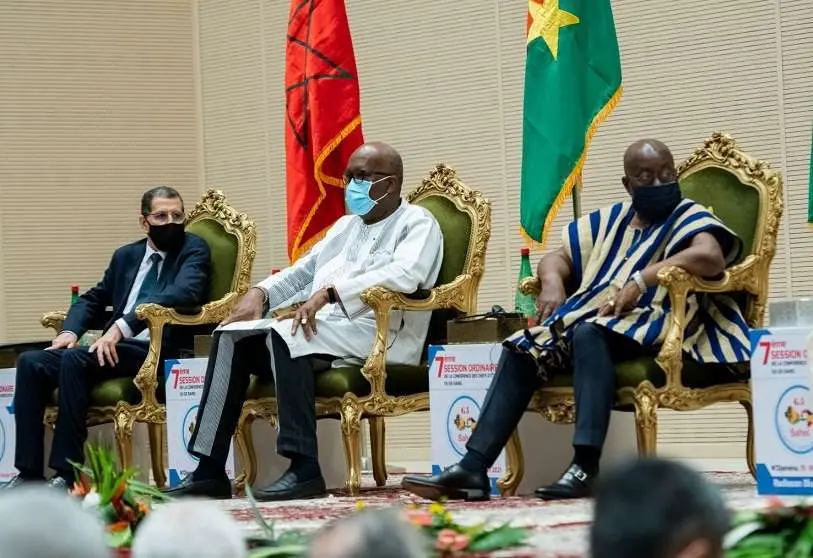¿Y si Marruecos se involucrara más en el Sahel?

The G5-Sahel summit held this week in N'Djamena, the Chadian capital, was attended by several countries from the region that are equally committed to the fight against terrorism. Some of them were represented at a lower profile, but others, such as Morocco, Ghana and Sudan, sent their political leaders.
Morocco was represented by its Prime Minister, Saad Eddine El Othmani, who thanked Mauritania's President Ould Ghazouani and Chad's President Idriss Déby via Twitter for their invitations. Their presence would confirm Morocco's interest in the stability and security of the region, something that could end up having repercussions on its own territory, despite the fact that it does not share a border with the most affected countries in the Sahel.

This is the first time that Morocco has attended this summit, so it can be assumed that it will be more involved in the region. In his speech, Othmani expressed the role that his country can contribute to regional development, especially in the area of security. Othmani said he would "address with the countries of the region the dangers that threaten their future", and also pledged to support the institutions that the G5-Sahel maintains in Nouakchott, and to contribute to the training of officers from the G5-Sahel countries in Moroccan academies.
There could be several reasons for Morocco to become more actively involved in the Sahel, particularly in the military sphere. On the one hand, the possible connection between the Polisario Front and terrorist groups in the Sahel, given the presence of the former in the area of Algeria bordering Mauritania and Mali, and of the latter also in the northern part of Mali. The second might have to do with France.

Paris announced at the beginning of this year, following several operations against jihadism and the death of five French soldiers in several attacks, that it is considering a gradual withdrawal from the Sahel, at least of the 600 troops with which it extended Operation Barkhane in January 2020. However, the delicate situation that the countries are still experiencing means that this decision must be postponed for a while, as it could ruin eight years of the fight against terrorism. Nevertheless, this solution is on the table, and Paris could be negotiating with countries in the region, especially Morocco, whose stability and capabilities are far superior to those of the Sahel countries, for the role that France is currently playing almost alone to be shared by other countries in the region, which could cause less social rejection.
In this way, Morocco would gain diplomatic and military presence in a region where Algeria also has a role to play. In fact, Algeria also attended the summit, albeit with lower-ranking authorities. Algiers has a different approach to the situation in the Sahel than Paris, so Morocco may have an advantage in this respect. Algeria believes that the problem should be tackled from a broader perspective, not only with a strong military focus, but also by addressing the underlying problems that give rise to the violence.

One of the most eagerly awaited questions at the summit was whether a withdrawal of French forces would finally be announced, even if only in part, or whether it would be postponed. Although both Florence Parly, the defence minister, and Emmanuel Macron, the French president, had announced that the 600 troops with which it was decided to expand Barkhane at the last summit in Pau would soon be withdrawn, this decision has been suspended for the time being. There is concern in the region that this decision may be politically motivated in view of the upcoming presidential elections that Macron will face in 2022.
Although the decision has been postponed, the French president did hint at his objectives for the future of France's military presence in the region. Recent moves suggested that the French withdrawal would go hand in hand with an increase in the presence of its European partners on the ground, which, together with the enlargement of EUTM-Mali and the possible interest of other countries such as Morocco, would make up for the decrease in French troops.
Macron commented that the scenario they are considering is that of a Takuba Task Force of some 2,000 troops from various European countries, of which 500 would be French. However, this figure is still far from being reached, as at the moment there are barely 250 European troops, not counting the French from Barkhane. At present, Estonia contributes 40, the Czech Republic 60 and the recently joined Sweden another 150, although the Nordic country could increase this figure by a further 100 troops. Italy is expected to join soon with another 200 troops, and other countries such as Greece, the Netherlands, Ukraine, Hungary and Serbia have expressed interest, but nothing has yet been finalised.










